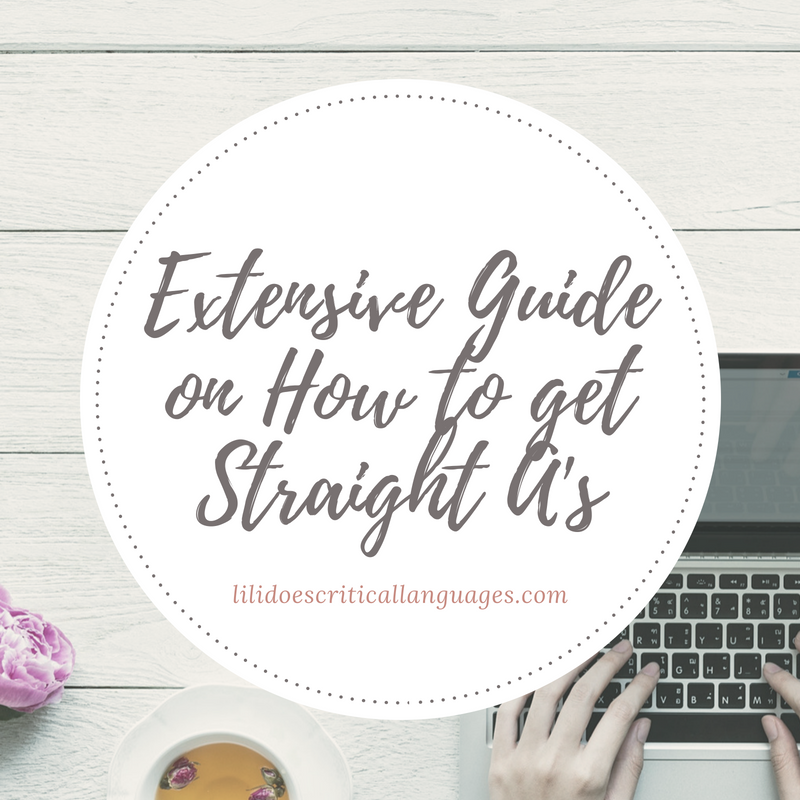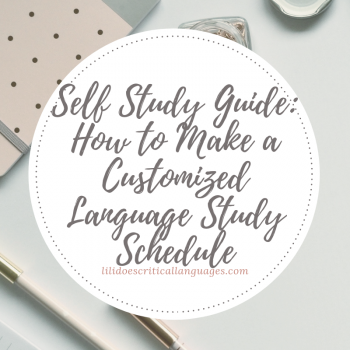Users Who Spiked

AN EXTENSIVE GUIDE: HOW TO GET STRAIGHT A’S IN COLLEGE OR HIGH SCHOOL
Private Notes
Private Notes
Notes
You know what I hated most about college? No, it wasn’t the fact that it was a lot of work. And no it wasn’t because of group projects. It was because I was home schooled in high school and everyone worried that I would be at a disadvantage because of it!
“But did you ever get lonely?” some concerned soul would ask.
“Did you study the same subjects?” someone else would ask.
“I’ll just call you Katy.” Another would joke making a reference to Mean Girls.
Being the home schooled one certainly set me apart, but not because I performed worse than other students, but because everyone thought I would. However, as it turned out, I outperformed almost all my classmates and scored a 4.0 my freshman year. Was it due to my homeschooling? Sort of, but most of it was the fruits of my own hard labor and a copy of How to Become a Straight A Student. Also, I have ADD, so that was a thing too. So how did I do it? Well, don’t touch that dial because you’re about to be given gold!
Plan The Whole Semester
When you first get your syllabus on the first day, put every major even into your calendar. These major events would be when an essay is due, when a group project is due, when readings are due, when the midterm and final exams are and when assigned homework is due. This information should be put into three sources: your phone calendar, a physical calendar on the wall (preferably by your desk) and in your planner. Planning your whole semester will help you be prepared ahead of time for all your assignments. This also avoids unwanted surprises.
Read the Syllabus for Clues
When you receive your syllabus, you must be looking to answer two questions by reading the syllabus: what does the teacher expect from me and my work? What does he/she want me to learn by the end? Why did he/she create this course? These are vital questions to answer because if you have the answers to these questions, you will be able to deliver work that your teacher will like and will give you A’s in. Let’s face it, you can write content that YOU like all day and all night, but if your teacher doesn’t like it, it’s curtains for your grades! Your teachers will have a writing style they prefer and you’ll need to try to dig through the syllabus to find out what it is. If it is a seminar class with lots of discussion, trying to pin point areas of interest to the teacher will help you win his/her favor.
Read How to Become a Straight A Student
Seriously! It gives you EVERYTHING you need to succeed as a college/high school student all while never compromising your social life! Every page was gold and the tips will make you wonder what you did without it before! So pick up a copy of How to Become a Straight A Student and have an edge over everyone else!
Plan Your Every Hour
There’s only a certain amount of hours you’re awake during the day, so it’s important that you take advantage of every hour. That’s why I planned every single hour of the day and kept a to do list of things to add to tomorrow’s schedule. The top of the page was today’s schedule, the bottom half was stuff I had to add to my schedule either for tomorrow or for another time. Anything I didn’t finish that day would get added to the schedule for the next day and it goes on and on till the end of the year.
Take Efficient Notes
An hour before every class, you should need to develop some pre-class rituals! Before each of my classes, if I didn’t have assignments due or reading, I would look at the syllabus to see what we would cover and do a quick google search of the topic so I had an idea of what I would learn. I just did that to avoid being overwhelmed with info during class. If there was reading before class, I would have done it one day before class and in the hour right before class review my notes.
So an hour before your class you should open your notebook and date it, then write the title “Reading Summary”, under this title you should write down a REALLY SHORT summary of your reading. And the answer to the question, what did the teacher want me to learn from this. I’ll explain this later. T
Then draw a line underneath this section. Under the line will be the notes you take during class.
After class, draw a line dividing your class notes from your after class notes and write a REALLY SHORT summary of what you learned it class and how it related to the reading. Then you’re done!
How To Do Readings
Firstly, before you even START doing any readings, look how long the reading is. Is it one hundred pages or more? Is it only 30 pages? If you think it’s kind of long, separate your reading into two parts. Read half now and half later on.
While you read, you need to keep two questions in your mind: 1) Why did the teacher assign this reading? and 2) What am I supposed to learn from it? If you have the answer to these two questions, you will have a deep deep understanding of the reading and DESTROY any exams you have later on.
If there are any dates in your reading, draw a timeline of events, so you can follow what’s going on.
Your reading notes can be any format you like, just so long as you understand the content. If you don’t understand something ASK THE TEACHER!
How to Write Essays
While the formatting of your essay depends on the topic of your class, there are a few tips you should know that applies to any subject. The first is to understand what the teacher wants. I mean REALLY understand it. Ask the teacher lots of questions about this so that it’s completely clear. If you have a TA, ask him/her as well.
Before beginning, write a basic outline of what you want to cover. It’s vital that you stay organized!
Remember when you looked at the syllabus to decide what the teacher wants from you and what he/she wants you to learn? Use that information to help you craft your essay. Does your teacher prefer objective informational essays? Does he/she prefer argumentative essays where your opinion shines?
If You’re Studying A lot, You’re Doing it Wrong
If you find yourself up into the wee hours of the night studying, or cancelling on friends in favor of reviewing stuff for an essay, then you need to look at yourself because you’re doing something wrong. It’s not about studying hard, it’s about studying efficiently. Once you get understand what your teacher wants out of your assignments and get used to your own study style, you’ll learn how to make things more efficient for you.
For one, you study faster if you take frequent breaks. Because I have ADD, I had to take breaks every 25 minutes to keep my mind from drifting into the freakin’ void. It is also a scientific fact that you should take frequent breaks to keep yourself alert and make the most of your study time. You must also find creative ways to study that will help make things go faster like using colors to remember concepts ,using mind maps or diagrams to get information into your brain faster. Try to find things that work for YOU to get that information in.
I never pulled an all nighter throughout my ENTIRE college career. NOT ONCE. Because I didn’t need to! I was efficient and nothing ever interrupted my free time in the evening!
Make Friends With Your Teacher
Go to office hours, ask questions, come to class on time and try to make it to all of them (unless your sick or there’s an emergency of course). The more you understand the teacher and get to know them, the better of you will be! Go to at least one office hour with some questions for them and talk to them about the topic they’re interested in.
If You’re in a Language Class:
If you’re like me and have a language class (even though I had three), there are some things you can do to make sure you get that A! Make sure that you also read the syllabus to see what you will be learning and to see how intense your teacher is. Personally, I preferred really structured and intense teachers, like my French teacher and Japanese teacher. The more structure there is, the more content you will be able to take in.
Don’t Wait Till an Exam to Review
Review the content you learn every day. The more you know before the exam, the easier the exam will be when it comes. So take 15 minutes a day to review all the content you learned up to that point. So make flashcards of new vocabulary as soon as you learn it and not right before an exam.
Read Ahead
Read ahead in your textbook! This is so important. Once you’re caught up and have done all your assignments, look at what you will be learning next and get a general idea of how it works. Don’t try to learn it inside out, but getting the gist is enough. Just so your slightly ahead during class.
Speak Up!!
Also make sure to not be afraid to speak up during class. Language teachers LOVE students are aren’t afraid to try. In fact, you will usually get extra points just for trying! So no skulking in the back of the class!
Practice With Your Teacher
GO TO THE TEACHER’S OFFICE HOURS TO PRACTICE GRAMMAR. This is VERY important, especially if you don’t know any native speakers of your target language yet. Set aside once a week were you go to the teacher’s office hour to practice using the grammar you learned. You have NO IDEA how much this will help you!! You will not only have a native speaker helping you use them correctly, you will understand how to use it by yourself.
Take Your Time With Your Assignments
Lastly, take your time while doing homework. When I was in Japanese class, I noticed my homework score shoot up when I sat down and gave it the time it deserved. So don’t rush through the work. Wait till you have enough time to do it and do it right.
Okay, so those are all my tips for now! I know it's alot, but there are many things that you must take into account and plan before you even begin your studies. The more you plan before hand and the better you are be able to understand these tips (and others) before your studies begin, the better off you will be when you actually begin your studies. Hope you have a wonderful school year!!! Now go get those A’s!!
Comments
Please login to post comments on this story
-
Great advice! I always like to plan ahead and write everything in my planner and put it in my phone. Takes the guesswork out of trying to figure out what you have time for.






















